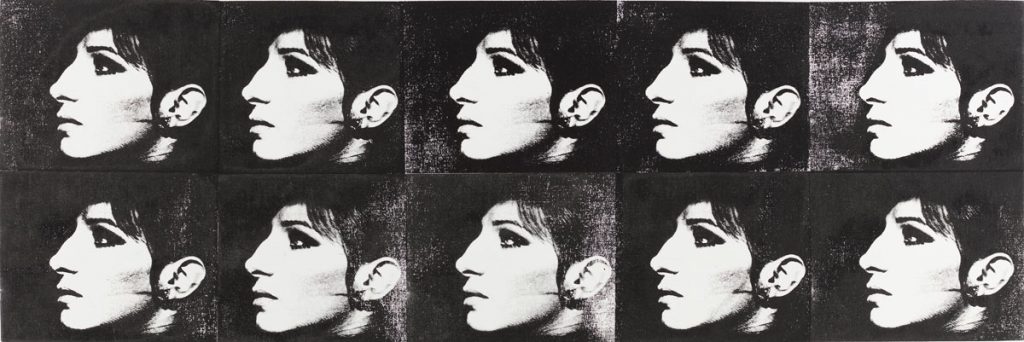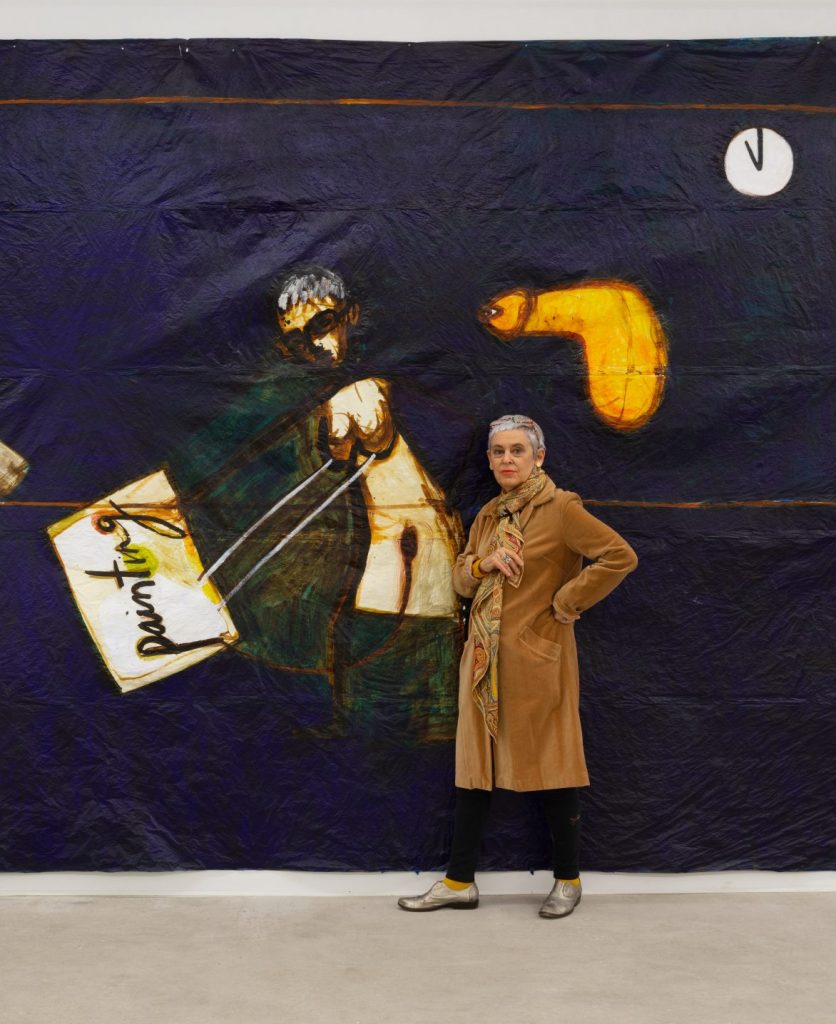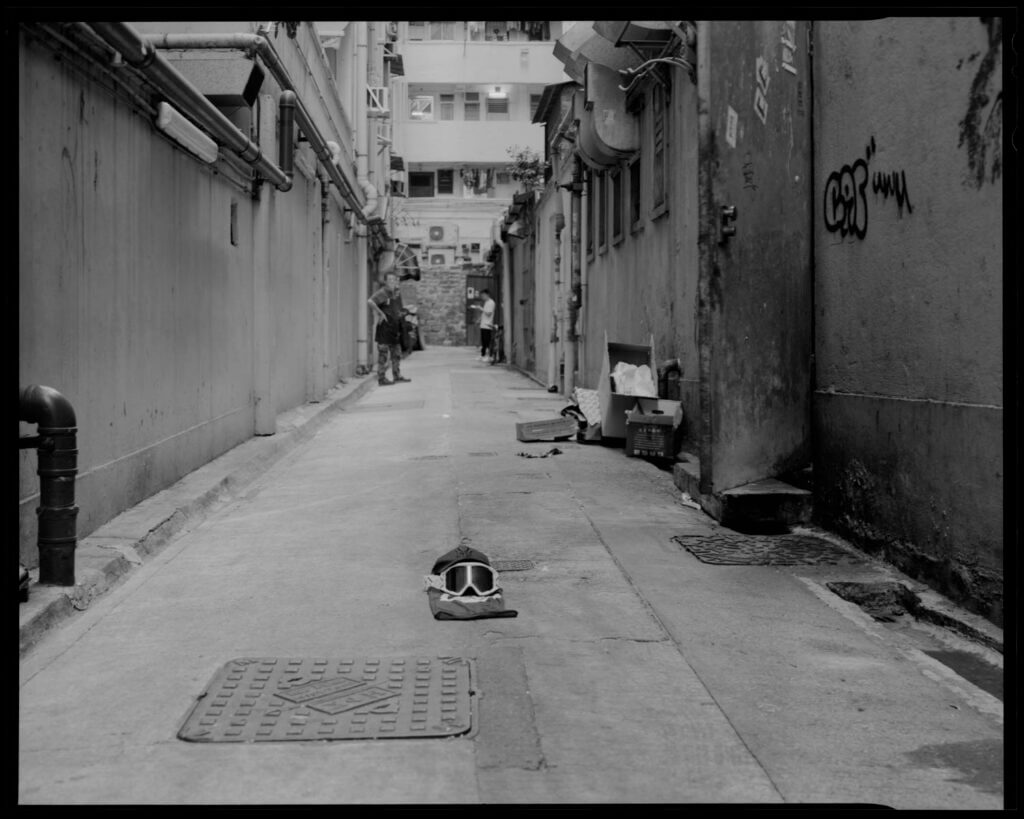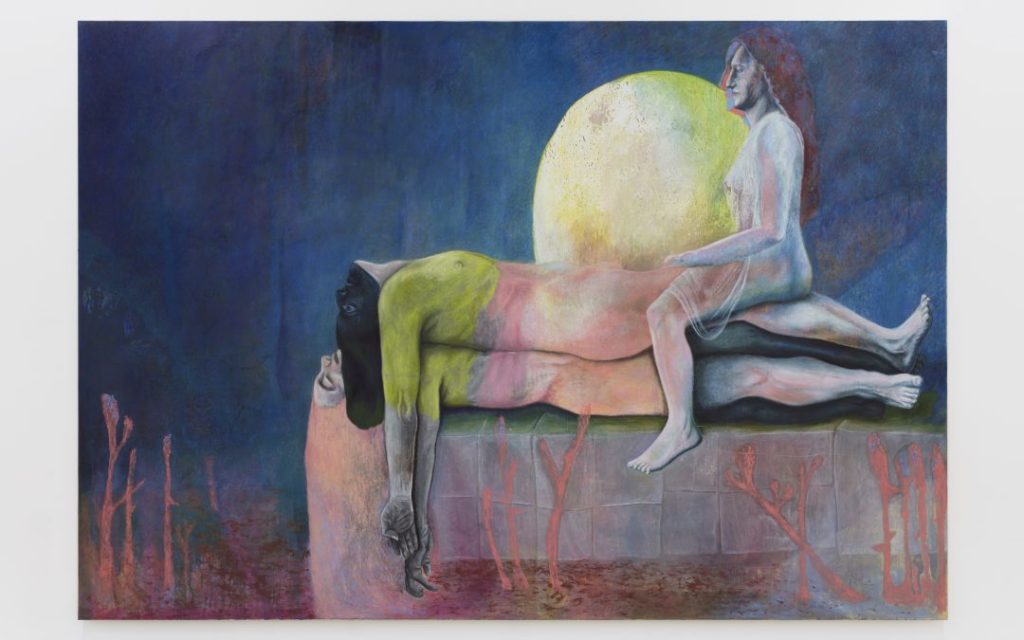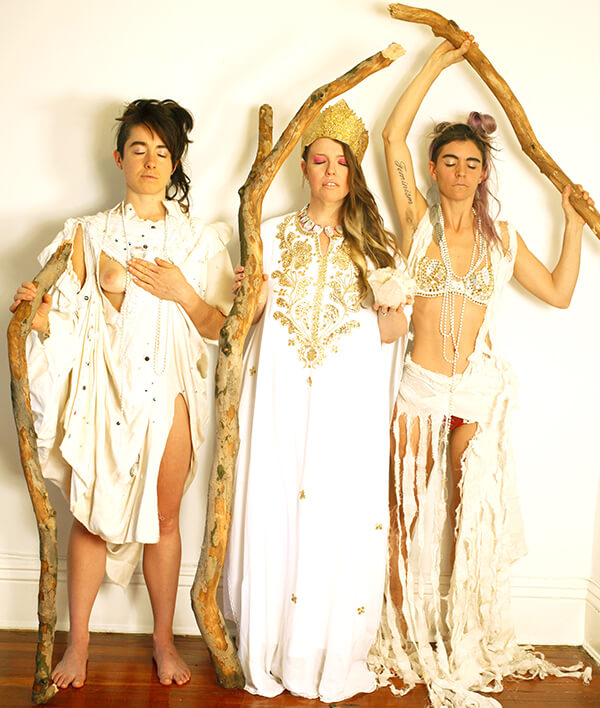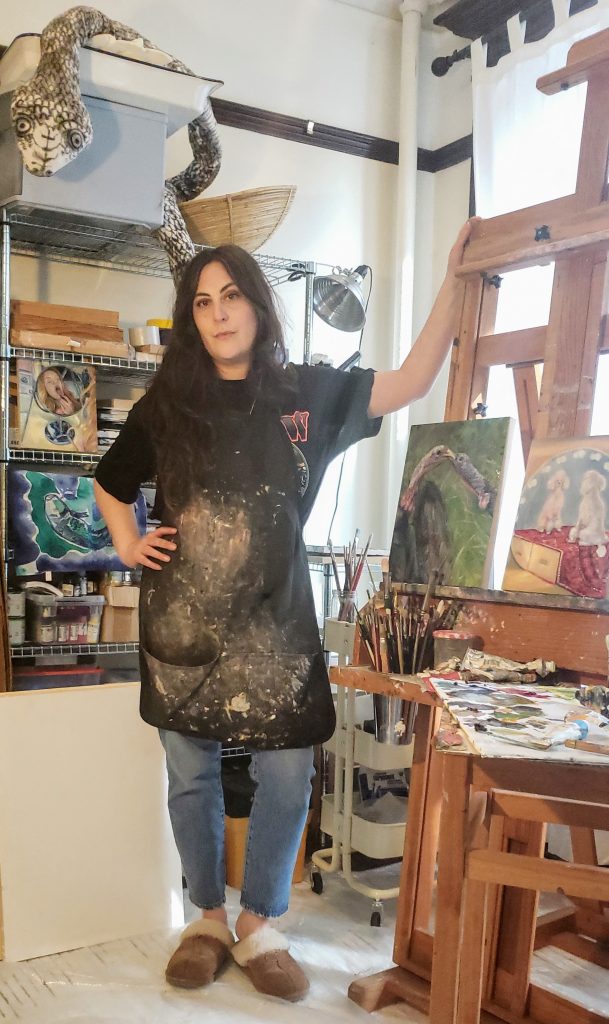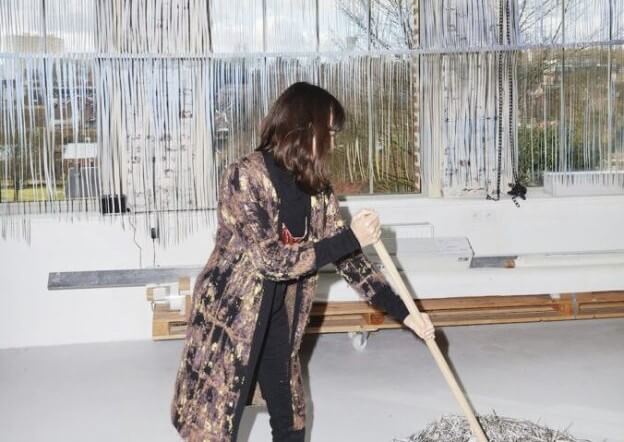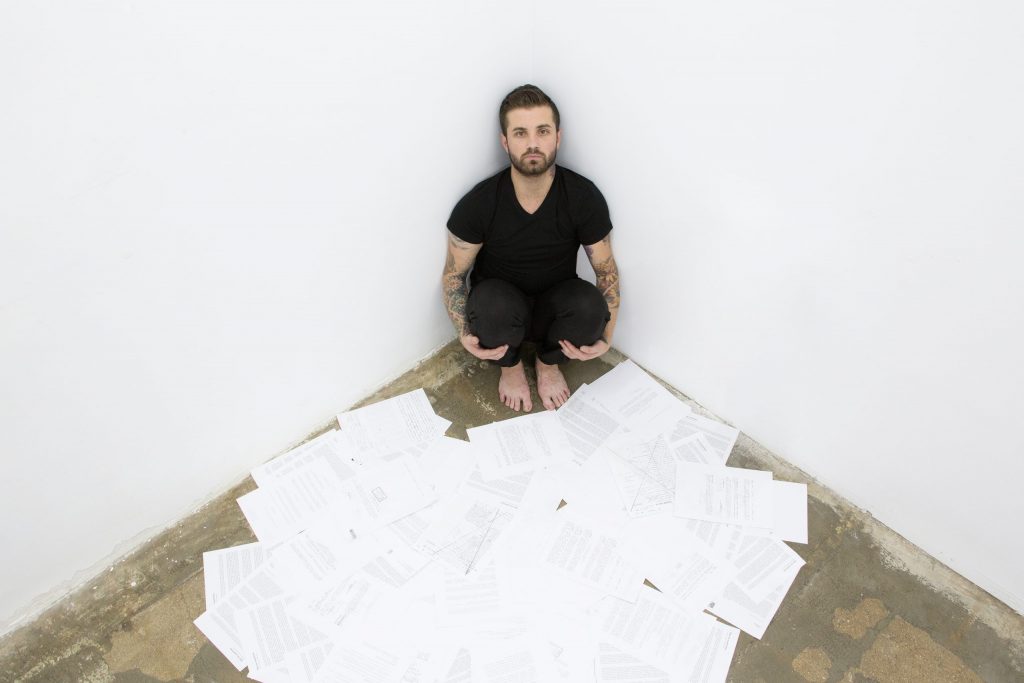Jacob Hicks: Painting Against the Dark Arts
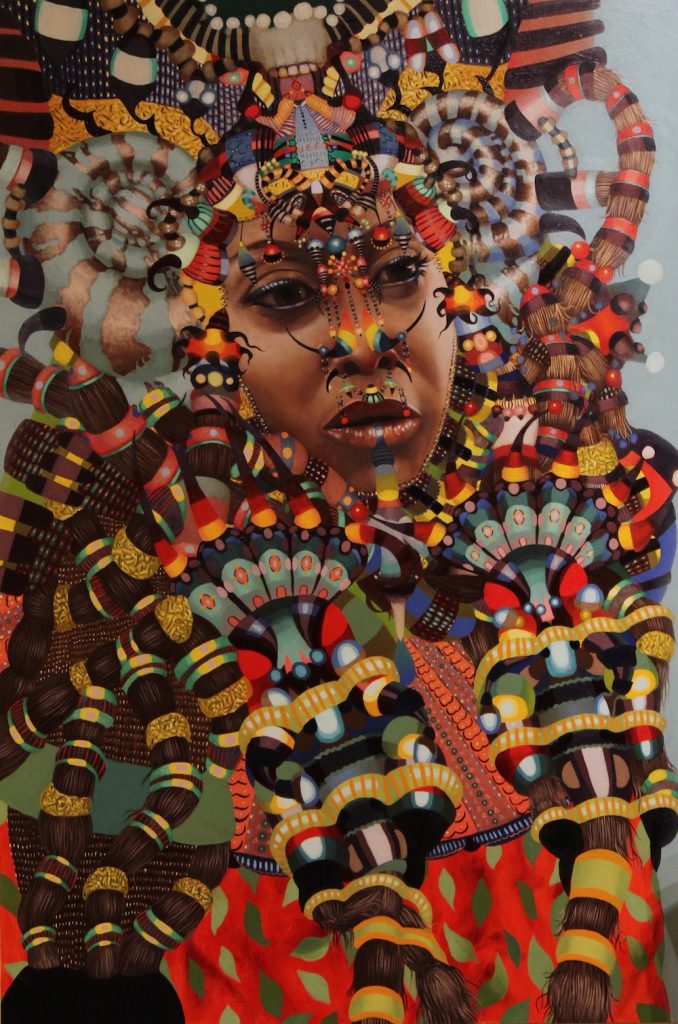
When US President Donald Trump was elected in 2016, a lot of people were – and to this day remain – unhappy. Brooklyn-based painter and teacher Jacob Hicks was one of them. He compares the US President to the Lord of the Dark Arts, aka “Voldemort.” The Trump administration has certainly been plagued with its fair share of controversy from allegations of Russian interference in the 2016 elections, to a plethora of others. So, through his art, Hicks has decided to add to the many voices of displeasure, speaking out against the current administration with a portrait of 100 women “in defiance of sexism”. Originally from Texas, Hicks’ medium of choice is oil, with which he paints figures that appear to be both hyperrealistic in their level of detail, while bathed in an other-worldly aura.
Hicks speaks to FRONTRUNNER about how he began painting, the inspiration behind his work, his process, and how he defines success.

Woman 9 (2018)
Oil on panel
10 x 12 in
Image courtesy of the artist
What first drew you towards painting?
When I was a child, I loved two things: nature and drawing. The two went hand in hand nicely since nature is a constant and primary source of inspiration for visual art. My first obsession was with Cetacea-whales and their relatives. This then evolved into an obsession with amphibians. The one constant as I age is my love of recreating biology through drawing and painting.
Faces feature prominently in your work at the moment. Why are you drawn to these faces and who do they represent?
With the election of Voldemort [Trump] in 2016, I began a project to paint 100 women as regularly as I could in defiance to his sexism. I am interested in portraits that project archetypal forms of power, beauty, intelligence, and dignity. The faces are sourced from old masterworks, and the costuming, environment, and decoration are imagined.

Woman 4 (2017)
Oil on panel
8 x 10 in
Image courtesy of the artist
What process do you go through to get immersed into a session of painting?
It takes about an hour to mix my palette. I listen to the news or music I love, drink unbelievable amounts of coffee, and disappear into my work for four to eight-hour sessions. I need a whole day to work with little or no distraction. At the end of the day I feel stressed and sad and accomplished.
Was there a moment when you knew art was something you’d be making your career out of?
I don’t think I ever had this moment. Art is my primary love, but I still must pay the bills. So, while I show frequently with lots of galleries I still need my day job-teaching with The Children’s Museum of Arts in Manhattan, for income and consistency.

Woman 6 (2017)
Oil on panel
18 x 36 in
Image courtesy of the artist
What do you think are some of the key challenges you’ve faced as you’ve forged a career for yourself in the art world?
As anyone who tries to make it as an artist knows, there is not a lot of money to be had. I’ve known critically-acclaimed, successful and talented artists living sale to sale or paycheck to paycheck. Most who “make it” and can continue to “make it” have guarantees from the get-go (financial stability). This is echoed in every American profession. The notion of social mobility is close to always an illusion, we just have to keep progressing with our visual art and day jobs.
What does success mean to you?
I feel success anytime I am able to witness someone carefully looking at my art, usually during openings. I feel a great sense of excitement and accomplishment. Even if they don’t like the work it is still thrilling to know someone else is paying attention.

Woman 9 (2017)
Oil on panel
8 x 10 in
Image courtesy of the artist
What plans do you have for yourself and your art in the future?
I plan to paint as much as I can and show my work to as many as I can. I am currently exhibiting with Gallery Henoch in Chelsea [New York City].

